Critical Learning in Nursing: Standards of Care, Delegation, and More
VerifiedAdded on 2023/06/12
|5
|779
|442
Essay
AI Summary
This essay provides a comprehensive overview of critical learning in nursing, focusing on five major areas: standards of care, delegation, liability, negligence, and malpractice. For each area, the author describes two key items learned – knowledge and skills – and explains how this learning will relate to their future nursing practice. The essay highlights the importance of understanding nursing standards for competency, the proper delegation of duties for efficiency and patient safety, awareness of liability causes to prevent errors, and the elements of negligence and malpractice to ensure patient safety and adherence to professional standards. The author emphasizes that gaining knowledge and skills in these areas is crucial for providing safe and effective care, ultimately shaping their professional nursing career. Desklib provides access to more solved assignments and past papers for students.
1 out of 5
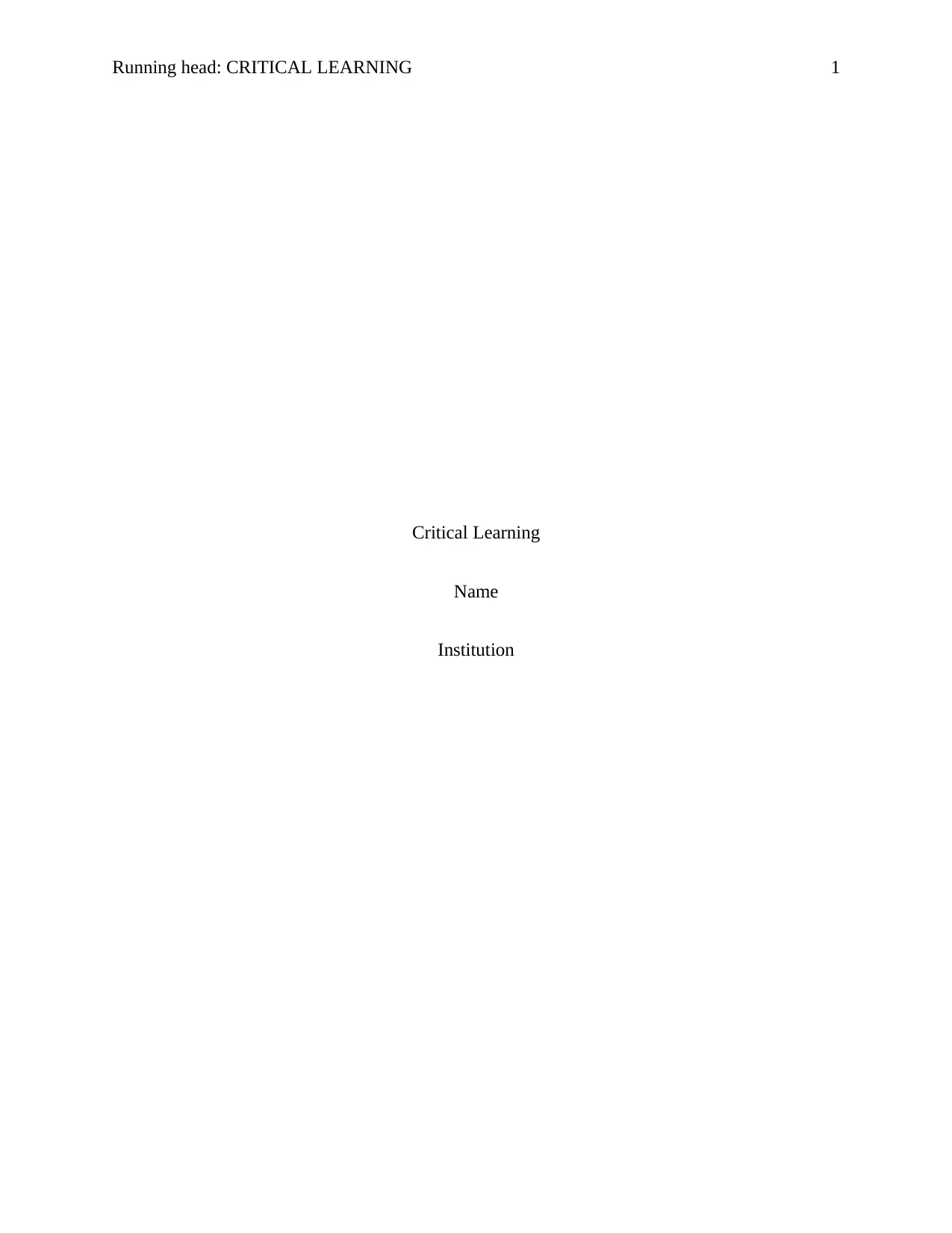
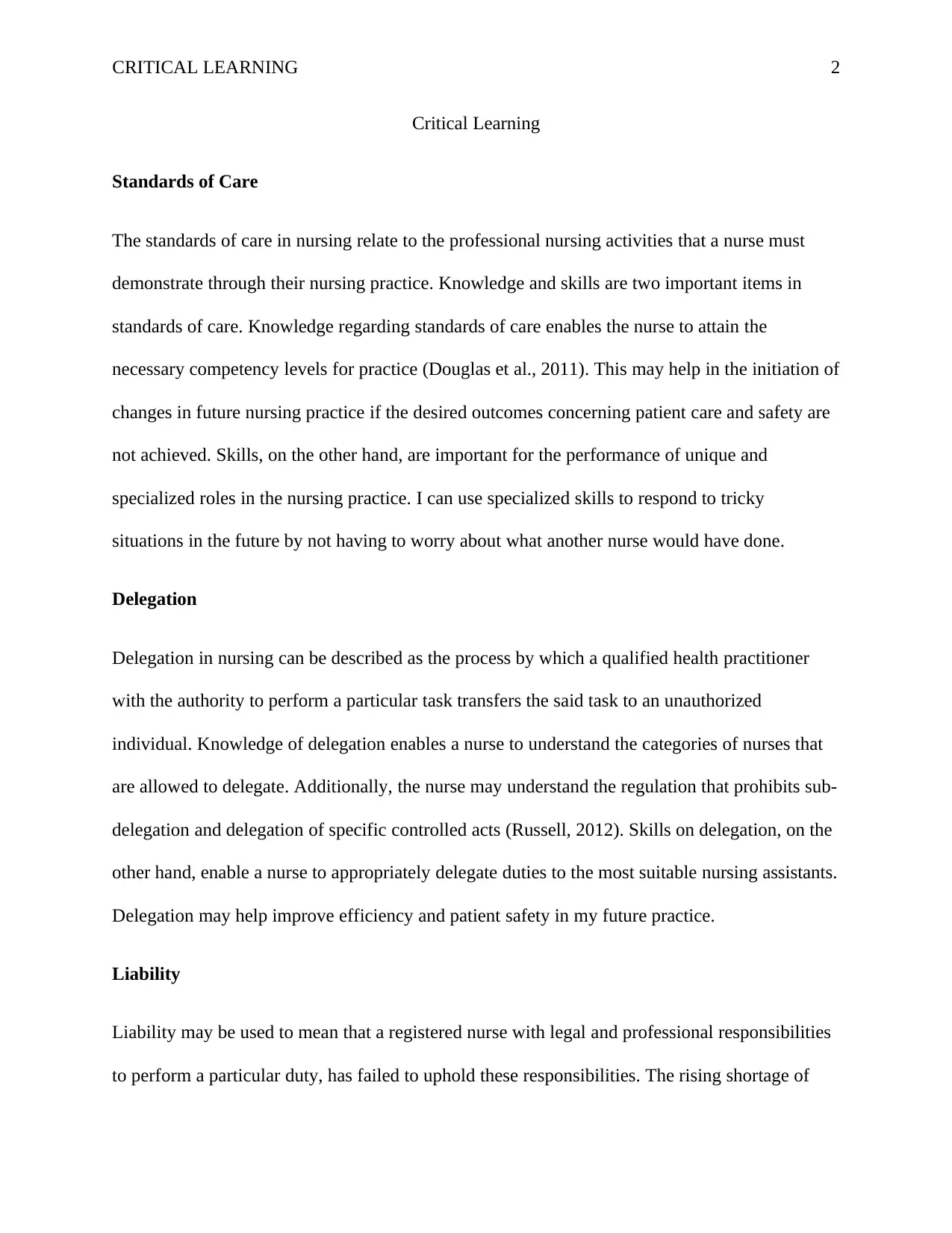
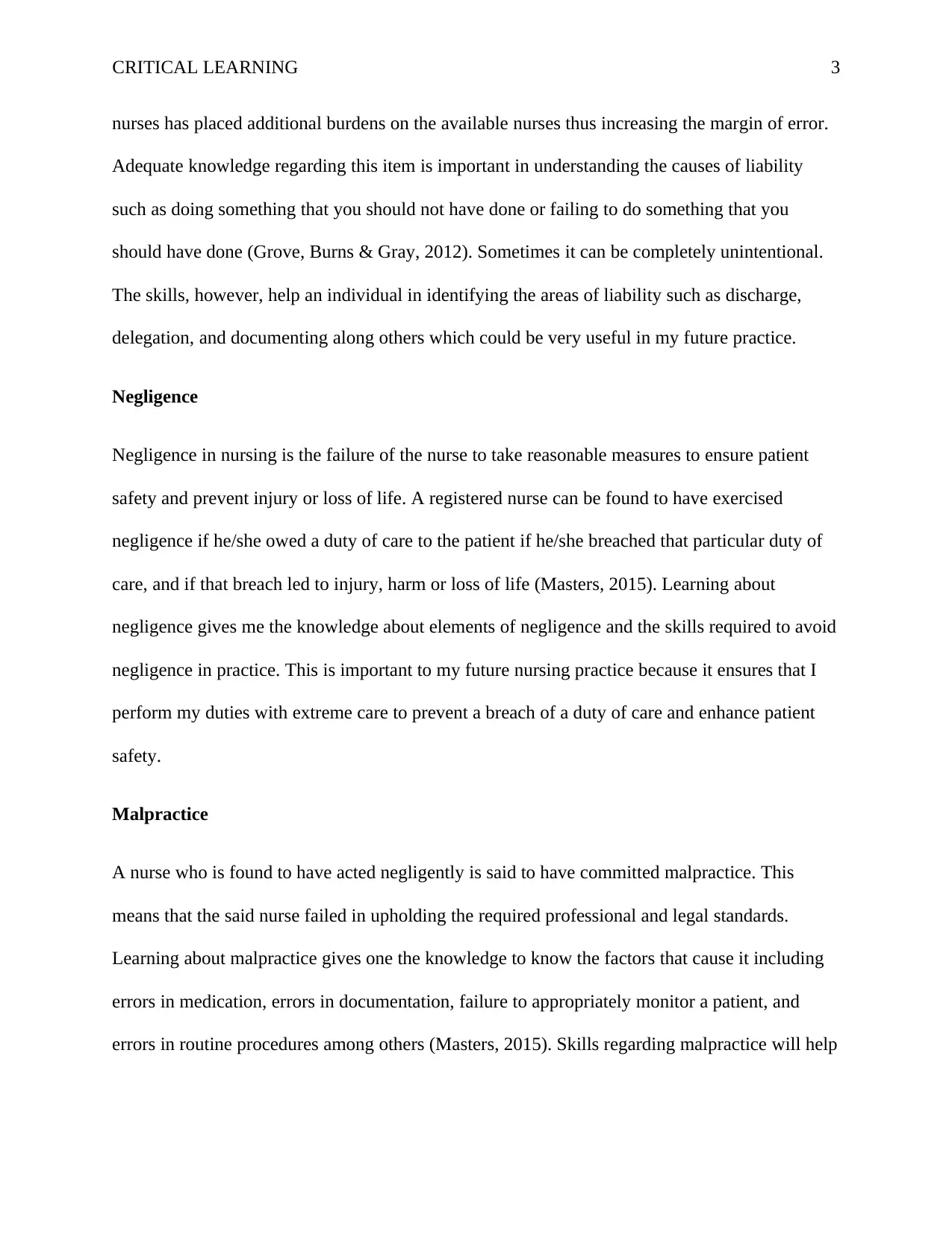

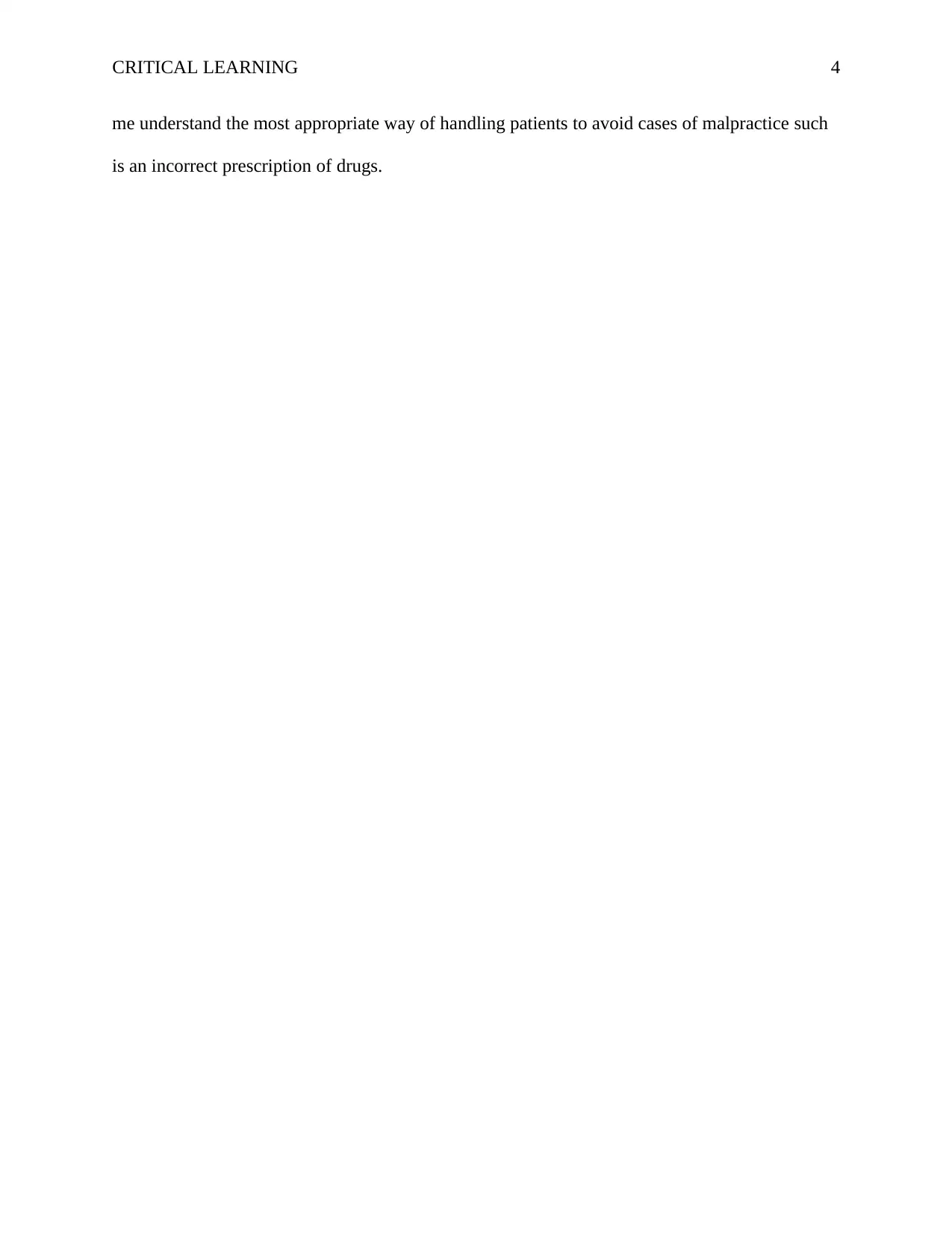
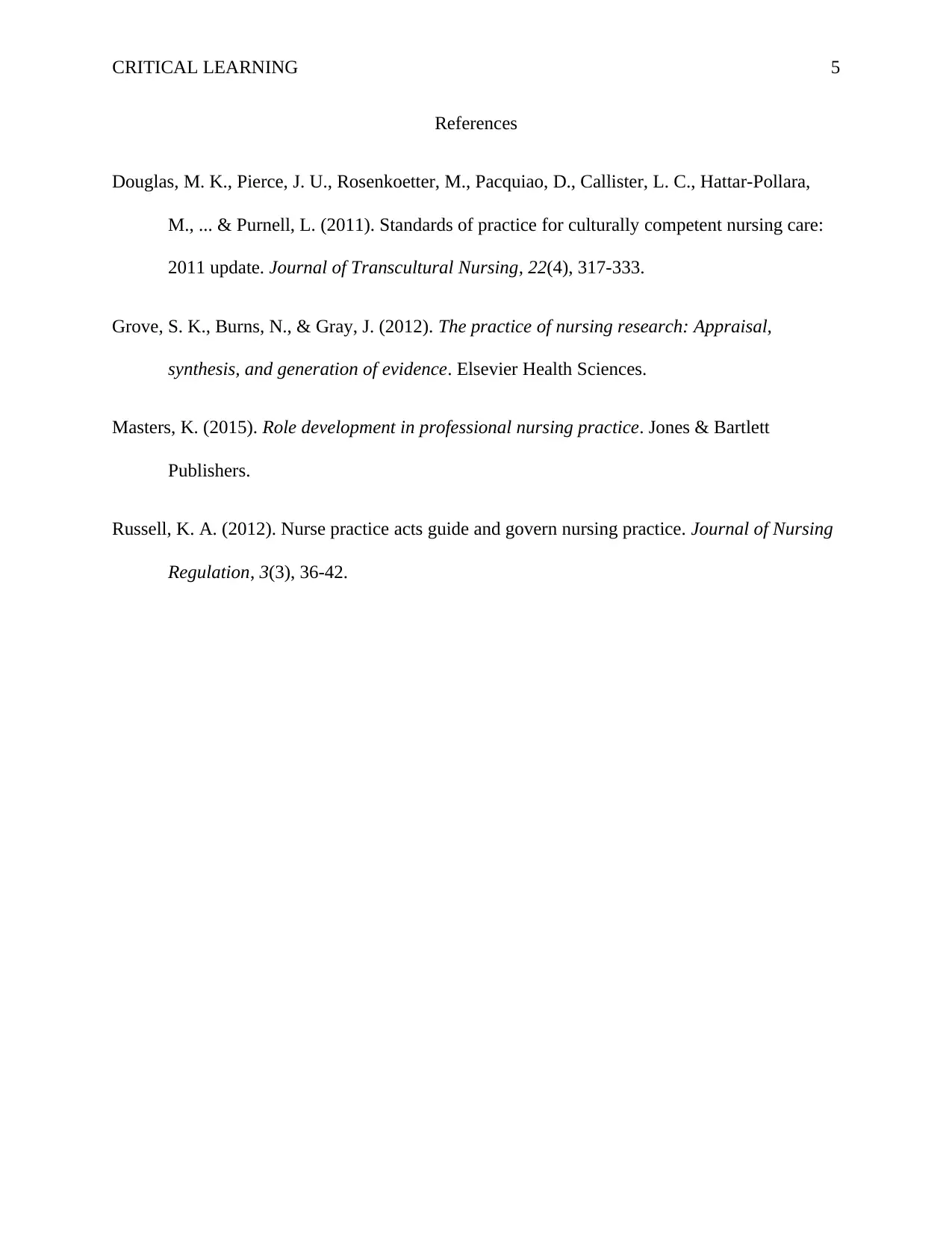





![[object Object]](/_next/static/media/star-bottom.7253800d.svg)